SPEAK WITH A LAWYER TODAY
Wage Discrimination Based on Race or Gender
What is Wage Discrimination? Wage discrimination occurs when there are discrepancies in pay towards minority groups. In general, wage discrimination is clear within different genders. Wage discrimination is also clear within different races. If you are a woman, you might have stumbled upon information that proved that you were being paid less than a male counterpart that was performing the same job duties. If you are a minority, you might be paid less for doing the same job as someone of another less. Do you believe that your employer has discriminatively paid you less than people of other genders or races even though your jobs are the same? You have the right to take action against your employer. With the assistance of an attorney, you can hold your employer accountable for his or her unfair and illegal actions against you – and recover the compensation to which you are entitled.
Unequal Pay Based on Gender
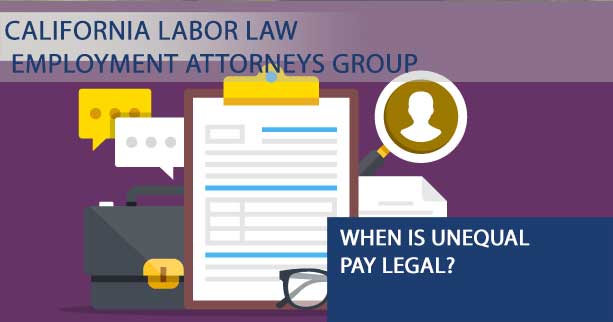 Although many people might argue otherwise, unequal pay is a relevant issue – specifically in terms of gender. As of 2017, full-time (and year round) female employees made 80.5 cents for every dollar made by men – representing a gender wage gap of 20%. On average, women earn less than men in almost all occupations; this is a concerning statement.
Although many people might argue otherwise, unequal pay is a relevant issue – specifically in terms of gender. As of 2017, full-time (and year round) female employees made 80.5 cents for every dollar made by men – representing a gender wage gap of 20%. On average, women earn less than men in almost all occupations; this is a concerning statement.
There are certain industries that are female-dominated, such as the following: elementary/middle school teachers; registered nurses; secretaries/administrative assistants; nursing/psychiatric; managers; customer service representatives; first-line retail supervisors; cashiers; accountants/auditors; first-line office/administrative supervisors; receptionists/information clerks; office clerks; maids/housekeeping; retail sales; financial managers; personal care; social workers; waiters/waitresses; bookkeeping/accounting; education administrators. The knowledge of certain female-dominated industries might lead to the assumption that females earn more than males in this specific industry. However, this is not the case. Even in industries that are primarily dominated by women, men earn more.
Consider some of the following examples:
- Female elementary/middle school teachers make only 85.5% of the earnings of male counterparts.
- Female registered nurses make only 91% of the earnings of male counterparts.
- Secretaries/administrative assistants make only 83.4% of the earnings of male counterparts.
- Female accountants/auditors make only 78.9% of the earnings of male counterparts.
- Female financial managers make only 70.7% of the earnings of male counterparts.
Some of the only exceptions to this trend include receptionists/information clerks and general office clerks.
Find out more about how we can help you.
CALL NOW to speak with a case manager.
All numbers and statistics relevant to wage gaps in relation to gender and race were derived from the Institute for Women’s Policy Research.
What about industries that are male-dominated? These industries include drivers/truck drivers, construction workers, software developers, manual laborers, janitors, carpenters, cooks, and production workers, for example. Without a doubt, male workers in these industries make more than female workers.
Some of the numbers are as follows:
- Female truck drivers make 67.4% of the earnings of male counterparts.
- Female software developers make 86.8% of the earnings of male counterparts.
- Female chief executives make 69.8% of the earnings of male counterparts.
- Female production and operating workers make 71% of the earnings of male counterparts.
- Female general and operation managers make 78.9% of the earnings of male counterparts.
The only industry that gets close to wage equality based on gender is that of customer service representatives – in which female workers make 98.7% of the earnings of male counterparts.
Unequal Pay Based on Race
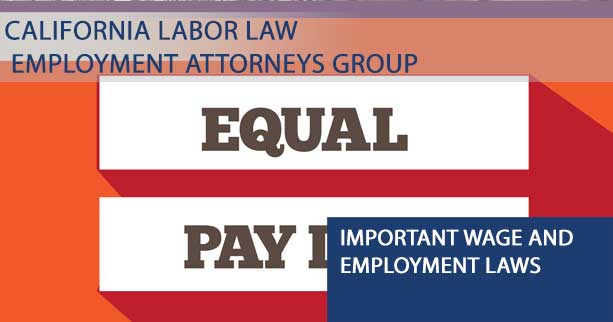 Without a doubt, unequal pay can be based on gender; however, unequal pay trends are also visible based on race. Many people might expect that wages are uniform across women of all races; likewise, there might be an assumption that men of all races earn the same. However, this is far from the truth.
Without a doubt, unequal pay can be based on gender; however, unequal pay trends are also visible based on race. Many people might expect that wages are uniform across women of all races; likewise, there might be an assumption that men of all races earn the same. However, this is far from the truth.
Information is available across women and men of four races (White, Black, Hispanic, and Asian).The same information is also available for men and women of the same race. This information shows a concerning trend – in general, specific races earn less, and employees earn even less if they are women of a specific race.
Consider the following information (dollar amounts represent median weekly earnings):
- Asian women across all occupations earn $937.
- Asian men across all occupations earn $1,241.
- White women across all occupations earn $873.
- White men across all occupations earn $1,111.
- Black women across all occupations earn $654.
- Black men across all occupations earn $735.
- Hispanic women across all occupations earn $617.
- Hispanic men across all occupations earn $720.
Trends show that both Asian men and women make more than their White, Black, and Hispanic counterparts. However, Asian women earn only approximately 75% of the wages of Asian men. Among White men and women, women earn 79% of the wages of men. Among Black men and women, women earn almost 89% of the wages of men. Among Hispanic men and women, women earn almost 86% of the wages of men.
What does this show? Even though Asian men and women both make significantly more than employees of the same gender of different races, the wage gap is greater than in any of the other races examined. The wage gap is also notable among White men and women. In the case of Hispanics and Blacks, the wage gap is significantly smaller – this highlights the fact that both men and women of these races are making considerably less than their White and Asian counterparts.
If your attorney is not maximizing your case value, contact our firm for a free second opinion.
Important Wage and Employment Laws
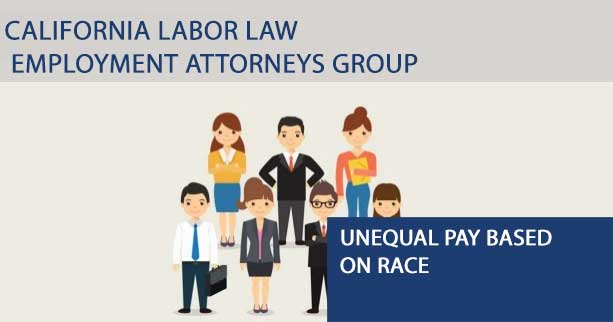 Without a doubt, there are laws designed to protect employees from unjust treatment in the workplace. These laws include both Title VII of the Civil Rights Act and the Equal Pay Act. These are federal laws. The Equal Pay Act of 1963 is a law that aims to making unequal pay based on sex illegal. Title VII of the Civil Rights Act makes it illegal for employers to discriminate against their employees and base any employment decisions (such as pay) on specific protected personal characteristics. As mentioned above, these laws are federal. However, most states have similar laws that offer additional protections to employees. Because these laws vary significantly state to state, it is important to get this information from a knowledgeable attorney.
Without a doubt, there are laws designed to protect employees from unjust treatment in the workplace. These laws include both Title VII of the Civil Rights Act and the Equal Pay Act. These are federal laws. The Equal Pay Act of 1963 is a law that aims to making unequal pay based on sex illegal. Title VII of the Civil Rights Act makes it illegal for employers to discriminate against their employees and base any employment decisions (such as pay) on specific protected personal characteristics. As mentioned above, these laws are federal. However, most states have similar laws that offer additional protections to employees. Because these laws vary significantly state to state, it is important to get this information from a knowledgeable attorney.
When is Unequal Pay Legal?
Past Wage Discrimination and Unequal Pay Cases
Although issues with wage discrimination and unequal pay are often swept under the rug, there is no way that the issue can be ignored. Wage discrimination and unequal pay based on discriminatory reasons are common – and it reflects on the amount of past cases available for review. Without a doubt, all cases are different, and claimants should never make assumptions about their claims based on past cases. However, reviewing past cases could provide claimants with important insight.
Consider the following examples of past cases:
EEOC v. The Guidance Charter School
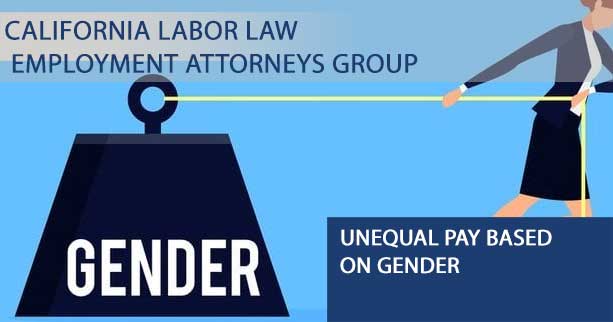 This is an EEOC lawsuit. A female math tutor at The Guidance Charter School claimed that she was paid a lower hourly rate than a male tutor. Both the parties had the same job. The woman complained to the school about the unequal pay; however, the charter school did not address the situation or take any action. The EEOC claimed that the school was violating both the Equal Pay Act and the Civil Rights Act by paying the female employee less than the male employee – even though they were performing the same duties. This case resulted in an $8,000 settlement, a two-year consent decree, policy/procedure changes, and specific required training, for example.
This is an EEOC lawsuit. A female math tutor at The Guidance Charter School claimed that she was paid a lower hourly rate than a male tutor. Both the parties had the same job. The woman complained to the school about the unequal pay; however, the charter school did not address the situation or take any action. The EEOC claimed that the school was violating both the Equal Pay Act and the Civil Rights Act by paying the female employee less than the male employee – even though they were performing the same duties. This case resulted in an $8,000 settlement, a two-year consent decree, policy/procedure changes, and specific required training, for example.
EEOC v. Spec Formliners, Inc.
Brianne Rigoli v. C.R. England, Inc.
The claimant, Brianne Rigoli, was hired by C.R. England in 2012. In late 2014, she was terminated. The claimant had never encountered any major issues in the workplace. Her supervisor, who was Hispanic, was always polite to her. Rigoli became pregnant and took maternity leave. She returned to work early in 2014. When the claimant returned to work, she found that her supervisor treated her differently. Rigoli claimed that her supervisor favored Hispanic employees. She also claimed that her supervisor forced her to work long hours without any compensation, meal periods, or rest periods. The claimant complaint to the proper parties and continued to work. The claimant was ill for some time; she was not allowed to return to work until she had obtained medical clearance. The claimant came to work (she didn’t enter the building) for something unrelated to the job with her coworkers. When the supervisor found out Rigoli came to work without doctor’s clearance, she began the motion to terminate her. After the termination, Rigoli claimed that her supervisor gave preferential treatment to Hispanic employees – often replacing non-Hispanic employees with Hispanic employees. The defense denied all of Rigoli’s allegations. Although the timing of the events that transpired raised suspicion, there were no violations of policy or law. The jury favored the defense.
How are these cases relevant to your claim? The first two cases mentioned provide clear examples of wage discrimination. The employees were being paid unequally in violation of federal laws. The final case mentioned is different. Although the employee made many allegations against her supervisor, she didn’t have any concrete evidence to back her claims. When she was ultimately terminated, it was for a valid reason – even though the circumstances made her termination suspicious. In the first two cases, the employers were clearly violating federal laws; however, violation of such laws was not present in the final case.
If you would like to review more wage discrimination and unequal pay claims, do not hesitate to seek legal assistance as soon as possible. Upon your request, an experienced employment attorney will review a number of relevant cases to help you gain a better understanding of your current situation and the possible outcomes of your case.
What Can You Do?
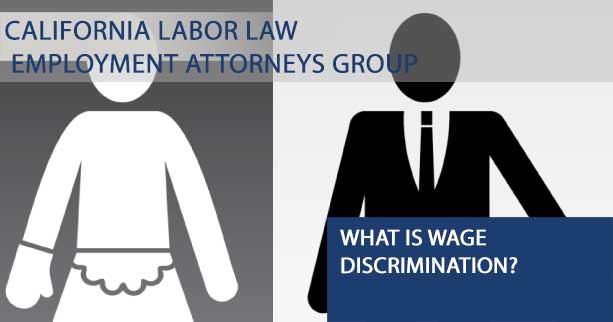 You were the victim of unequal pay; what can you do? What are the options available to you after becoming the victim of wage discrimination? The answer to this question depends on the specific details of your claim and the action that you are interested in pursuing. In general, the following options are available:
You were the victim of unequal pay; what can you do? What are the options available to you after becoming the victim of wage discrimination? The answer to this question depends on the specific details of your claim and the action that you are interested in pursuing. In general, the following options are available:
- Filing a claim with the Equal Employment Opportunity Commission (EEOC)
- Filing a claim with the Department of Fair Employment and Housing (DFEH)
- Filing a claim with the Department of Labor
Regardless of the specific details of your claim, you could be certain that there is something you can do to exercise your rights and take action against your employer. If you would like to learn more about the specific options available to you after being subject to wage discrimination based on your gender or race, for instance, do not hesitate to seek legal assistance as soon as possible
If your attorney is not maximizing your case value, contact our firm for a free second opinion.
Can You Recover Compensation?
You were subject to wage discrimination. You file a claim; could you recover compensation? Like all other types of employment claims, the specific type and amount of compensation that you are eligible to receive depends on the specific details of your claim, such as whether you were eventually terminated or whether you were emotionally affected by the unequal pay/termination, for example.
In general, claimants could recover compensation for the following:
- Back pay (all the wages owed)
- Front pay (all the wages that will continue to be lost due to a termination, for example)
- Pain and suffering (for the mental and emotional distressed caused by the issue)
- Punitive damages (awarded to punish the defendant)
- Legal fees
Regardless of the specific details of the compensation that you could recover, you could be certain that experienced wage discrimination attorneys will be able to provide you with all the information to help you understand the type and amount of compensation that you could receive. Without a doubt, you are owed compensation – and choosing the right attorney to represent you ensures that you recover the maximum amount of compensation available for your claim.
Important Steps to Consider
After suffering wage discrimination or any sort of issue involving unequal pay, it is important for employees to take certain actions – if they are interested in eventually pursuing a claim against their employer. Consider the following recommended steps that victims of wage discrimination should pursue:
- Gather evidence of the pay inequality you are suffering
- Try to talk to your employer about the problem
- File a report with the appropriate agencies
- Seek legal guidance with an expert on wage discrimination claims
Is there a Deadline for Pursuing a Claim?
All claims are subject to statutes of limitations. What is a statute of limitations? A statute of limitations is a deadline that applies to all claims – establishing the length of time that claimants have to pursue their claims. If claimants do not file their claims within the time allowed by the deadline that applies to their claim, claimants will lose their right to sue – and with that, the right to receive compensation. What specific deadlines apply to your claim? The timelines that apply to your claim to establish the length of time that you have to file your claim depend on the specific action that you are pursuing.
Consider the following points:
- To file a civil lawsuit against your employer for a violation of wage laws, you will have three years to pursue your claim.
- To file a claim with the EEOC, you will be subject to a 180 day statute of limitations (or 300 days if a state agency exists in your state).
- To file a civil lawsuit after dealing with the EEOC, you will be subject to a 90 day deadline (after receiving the right to sue).
- To file a claim with the DFEH, you will be subject to a 1 year statute of limitations.
- To file a civil lawsuit with the DFEH, you will be subject to a 1 year statute of limitations (after receiving the right to sue).
Are you willing to lose your right to take action against your employer due to missing a deadline? If you answer is no, do not hesitate to seek legal assistance to gain a better understanding of statutes of limitations and learn more about the specific deadline that applies to your claim.
Contact Our Law Firm
Do you believe that you were the victim of wage discrimination? Did you receive unequal pay because of your gender or your race? If you believe that you suffered wage discrimination in your workplace, you might have grounds to pursue a claim and recover compensation. Depending on the specific details of your claim, you will likely be eligible to receive compensation for your unpaid wages and other damages available for your claim. Without a doubt, you want to fight for the wages that you were cheated out of; if so, you can be certain that the knowledgeable attorneys at California Labor Law Employment Attorneys Group could provide you with the guidance necessary to pursue a claim against your employer. The experts at our employment law firm have many years of experience handling a variety of employment claims – including wage claims. If you would like our lawyers to evaluate your claim and provide you with the information that you need to pursue a claim, do not hesitate to seek legal assistance as soon as possible – we are ready to represent you.
When you contact our law firm, you will find that you will never have to worry about paying any expensive fees to speak with our lawyers. Our law firm is dedicated to remaining accessible to all parties that might have grounds to pursue employment claims. Because of that, our law firm offers both free consultations and free second opinions. During our free consultations and free second opinions, our knowledgeable attorneys will be available to provide you with all the information that you need. Our lawyers will answer all your questions and address all your concerns, ensuring that you have the tools necessary to start or continue your claim. If you would like to schedule a free consultation or a free second opinion with the knowledgeable employment attorneys at our law firm, do not hesitate to contact us today.
We are dedicated to providing victimized employees with the legal assistance necessary to pursue their claims. We understand that many people do not take legal action due to the fear of expensive legal fees. Therefore, we offer a Zero-Fee guarantee. Our contingency fee basis ensures that our clients never have to worry about paying any upfront legal fees for any of our legal services. Our law firm is also strictly based on a contingency structure; therefore, our clients will never have to worry about paying any legal fees until their claims reach successful outcomes. Contact us today to discuss your situation with our experienced employment attorneys.
100% FREE CASE CONSULTATION
